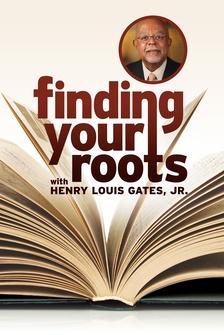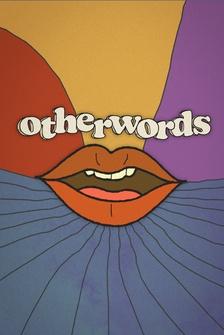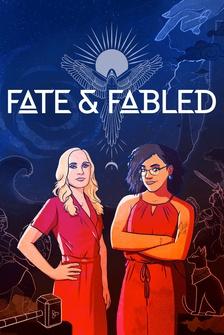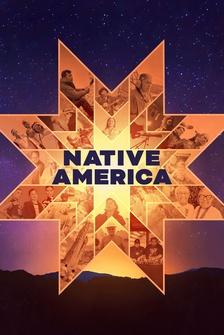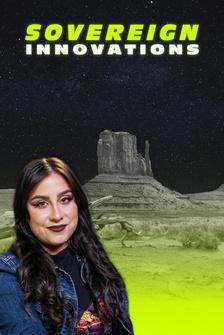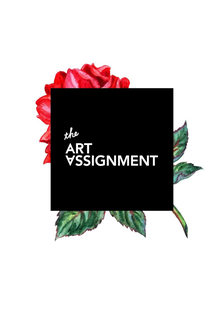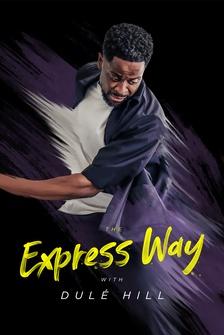[♪♪♪] -♪ Every day every day Every day ♪ ♪ Every day I write the book ♪ [♪♪♪] -Welcome, I'm Rose Martin, and we are Write Around The Corner in Washington County, Virginia, with one of the most important writers of our time, Barbara Kingsolver.
Demon Copperhead is a modern adaptation of David Copperfield's Southern Appalachia , and it's Barbara's earnest attempt to write the Great Appalachian novel.
Barbara Kingsolver, thank you so much for inviting us here to your home, and for being on Write Around the Corner .
-Well, you're welcome.
Welcome to my house, and to my holler.
-It's beautiful.
And I can see why one might not ever wanna leave this holler.
It's just spectacular outside.
Too bad our viewers can't see the outside as along with the beautiful inside.
-It's a little cold out there today.
-Exactly right.
So, I read that you really never intended to be famous.
It's something that the universe just said, "Barbara, we're givin' it to ya.
And here you go."
-And I keep trying to pass it on.
No, I never... no, I'm as introverted a person as you can imagine, which suits me well for a profession of sitting alone in a room day after day.
I mean, I love my family, I love my friends, I love my readers, but I'm a person who really loves to be alone.
I love observation, and I love writing.
And I always wrote, since I was really young.
From the time I was a little kid, I kept a journal.
I wrote little poems and stories, you know, that weren't very good, but I just loved to do that.
And I loved to read, and I never imagined in childhood that an ordinary, regular person like me could write books.
So, no, I didn't intend to be a writer, with a capital "W".
And then, even after that title came to me as I began to write for a living, the last thing I really was thinking about was fame or fortune.
I just wanted...
I just wanted to write stories that mattered about things that mattered.
-Well, and that's so obvious in all of your work, because they are stories that matter, and they'd make a difference in people's lives.
You mentioned your childhood early on, and I was fascinated when you spent second grade in the Congo at age seven.
-Yeah.
-But I was really fascinated because your dad, being a college graduate, wanted to be a doctor.
But when you got to the Congo, the people really weren't used to seeing white people and tried to rub your skin?
-Yeah, we lived... Yeah, I would tell you that I lived in the Congo instead of second grade... -ROSE: Okay.
-...because where we were, there was no school.
There was no electricity or running water, or automobiles or roads, or anything you would recognize as stores or commerce.
We lived in a really rural village where there had not been white people before, white kids most people in the village had never seen.
So, I learned early on what it's like to be stared at and thought odd for the color of your skin.
And that's a lesson that really, you know, I definitely brought home with me.
But my brother and I did our best to make friends with the village kids and tried to keep up with them.
They were much better at... than we were at things like climbing trees and finding food and building houses, and, you know, taking care of their siblings.
And so, we just did our best to blend in, to learn Kituba, to try to make ourselves useful in that place.
-Well, and community's always been important to you, so creating those little communities right then when you were a child, have you been able to do that with your children too?
Is that something that you've instilled in them from the time that they were little, with both of them?
-Well, I think living here where we do as Appalachians, it's just in the air we breathe.
I would consider that to be fundamental to Appalachian people is community.
Rural people, in general, yes, small-town people, but especially here in Appalachia, we... you know, we're people who know our neighbors, who bring them casseroles when somebody's sick or has died.
We understand how we're dependent on our neighbors because we do things for them and they do things for us.
We have a kind of awareness, I guess, of our interdependence in Appalachia, which is really, really important to me.
It's something that I have missed in the times of my life when I've lived in cities, where you don't know your neighbors necessarily.
Where people don't make eye contact on the street, it feels very strange to me.
And always, I feel comforted to come back home where even driving down the road, every person on every porch says... or they wave at you from their cars.
We know each other.
And of course, you know, raising my kids here, they value community and interdependence in the same way I do.
And they have pursued passions in their lives, as I have, that really reinforce community values.
-And I think that's so important.
And you're right, that's one of the things that in Appalachia, people can count on, and it's a core value of what people are and what they believe, and how they interact with each other, and that's really, really important.
I know that you're also an accomplished poet and you publish books of poetry, and I found this interesting quote that you said, "Poetry is so important to me, it's on my nightstand, because it's flossing the word-loving parts of your brain."
And I thought, "Ooh, really, when I think about dental floss, we're flossing those parts of our teeth.
And Barbara's taken it to our brains."
-I love to read poetry.
I love for poetry to be the last thing I read at night, lines of poetry, because those words, and the way they interact with the word-loving parts of my brain, it feels like flossing, you know, keeping them safe, you know, floss the parts of your brain you wanna keep.
-Right.
And keep healthy... -Yeah.
-...and your words in all of your books are so carefully chosen.
And I find myself going back and rereading because the beauty of how you formulate language to convey a thought just can grab you right in your heart.
-Thank you.
-Or make you think back to, "Oh, I wanna read that again to how she put those words together."
Is that something that's always been just natural for you?
-Oh, no, it's a lot of work.
-ROSE: Okay, it comes across... -It's my job.
It's my job, but I love to do it.
I mean, I consider a novel to be a really, really long poem.
It also has to have a plot and good characters, but every sentence has to have its correct shape.
Every sentence has to fit with the sentences around it like the pieces of a puzzle.
It has to sound beautiful.
It has to have meter and rhythm, and heft, and nostalgia, and, you know, all of these things that poetry has.
I love for that to be in the language of my novels.
So, that means after I write a first draft, I go back and rewrite every sentence again and again.
Every chapter will be rewritten between 15 and a hundred times.
Every sentence in a book, by the time it's published, has been not just polished, because polish sounds like you're just, you know, touching the surface of something.
It is more like an engine rebuild, you know.
I take whole sections of the book apart.
I throw parts away.
I make sure that it's concise, that every word is there for a reason.
I read aloud to myself as I'm writing.
I'll read passages aloud, not just dialogue, but the descriptive passages as well, because it really needs to flow.
It needs to be beautiful.
Does that come naturally?
No, it is work.
I sit at my desk for thousands of hours working at my keyboard to make these sentences flow, to make them beautiful.
I would rather be doing that than anything else.
When people say, "How do you stay at your desk?"
I ask, "What would I rather be doing?"
I am never tempted to get up from my desk and go clean the house.
You know, I love to work with language.
I have always loved that.
And I believe that passion is the better part of what people call talent.
Because if you love to do something, whether it's riding or fixing bicycles, or doing hair, or gardening, if you love to do it, you're going to keep doing it until you get really good at it.
-Well, I love the fact that you led us into your love of revising.
So, by saying that, you said you would maybe contract out the first track, and you like to dig in to do that revising, and you've just described that beautifully how you really rewrite the book over and over again until you get that flow, until you get that innate sense of yes, it's done.
I like this, and to move on next.
Something in your past that I read about was, you were a founding member of the Rock Bottom Remainders.
-I was, mm-mm, yes.
-True?
Okay.
So, tell me, who were the Rock Bottom Remainders, and what was the goal there?
-We were a group of authors who also play rock 'n roll.
And it all came together via a media escort.
There are media escort professionals who take authors around when we go on book tour.
There was this wonderful woman in San Francisco, Kathi Goldmark, who was also a musician, that was her other job.
And so, she would always ask, when she was driving us around to our interviews, different authors coming to town, what do you like to listen to?
And she found out a lot of authors also are musicians.
I play keyboards.
She found out Stephen King plays guitar.
Amy Tan is a singer.
Ridley Pearson is a bass player.
Dave Barry is a lead guitarist.
So, she had the idea of putting us all together in a band, and we were... not really very good, but we had a good time.
I mean, it's three chords and an attitude, you know, that was our T-shirt, and we were good enough.
Playing rock n' roll covers is not real hard, and we had fawning audiences of librarians and readers.
I mean, we really could fill a hall.
So, we did some concerts, some touring.
We borrowed Aretha Franklin's tour bus and did an East Coast tour.
We had a really good time.
That's a chapter of my past that doesn't come up very often.
-Just a little memory.
Just a little memory.
-BARBARA: Yeah.
-Well, and getting to the writing part, I had read, you know, you never pictured yourself as a writer because they were old dead guys from England, that's who the writers were in your mind, to think that you could then make things up for a living, it's a gift.
I wear my fuzzy slippers to work, and it's the most amazing job in the whole world.
-It is, I love it.
I would do this if nobody paid me.
I would get up and go to my desk and write books every day, write stories every day, whether anybody was reading them or not.
But I'm so glad that people are.
And, you know, most of the time, as we discussed, I live in a beautiful place.
I love this old farmhouse.
I love this farm.
We live on a working farm.
I love my neighbors.
I love my family, my daughters, and their families who are nearby.
And I'm really happy here.
So, most of the time, this is where I work.
And then, when a book comes out, I'm kind of exploded out into the world.
And I go on book tour, and I talk, you know, on TV, and I talk with readers, and I talk to, you know, halls full of people about my newest creation.
And it's hard for me, as an introvert, to sort of put myself in front of people like that.
But it's also very good for me because hearing from readers, from so many readers, who tell me what my work has meant to them, reminds me that I'm not just upstairs talking to myself.
This is a big conversation here.
Each book that I put into the world is a huge conversation, and I'm really grateful that we can have it.
-Well, and I'm grateful that you continue to write because as one of those readers that's impacted by your words, they make such a difference.
And your effort to craft those perfect sentences in the synchronicity that you do is what makes the work so beautiful.
Even if they're tough conversations and tough topics, we find ourselves still page-turning to find out what's gonna happen, what's gonna happen next.
You know, Appalachia, where we live, is a little bit of a dichotomy.
It's the most beautiful place in the world, and then, I loved your description of "chronically poor, the butt of a lot of jokes, and the Titanic of preexisting conditions."
-Yeah.
-ROSE: Wow.
-Yeah.
This place is so complex, and the history of Appalachia is so heartbreaking.
If you look back at all the different outside interests that have come in here to scoop out our resources, first the timber, then the coal, then tobacco was another deal that was done to us that left us damaged and broken.
And then, you know, the opioid epidemic is the latest in this cold train of exploits.
These are things that were done to us and that have left us, you know, in a difficult place.
This is the definition of structural poverty.
We are historically limited, historically poor, and we get blamed for it.
We are seen by outsiders as hillbillies.
We are considered sort of too dumb to get our act together.
We are the butt of every joke.
If you see Appalachians on television or in film, wait for it, that person is gonna be the joke.
-And that's tragic.
It really is.
-It's more than tragic, it's infuriating.
And it persists into the future, this is not olden times.
I mean, yes, Deliverance and The Beverly Hillbillies were olden times.
Those things have just been updated.
Those stereotypes are still with us.
In a modern era, when stereotypes are not supposed to be okay anymore, that kind of classism and denigration is not, not okay anymore, and yet it's still done.
It leaves people really angry, traumatized, and people who've been traumatized kinda see the world in black and white, are vulnerable to sort of opportunistic leaders.
It's a scary situation.
So, as an Appalachian myself and as a writer, I see it as my duty, my obligation, to represent my people in a way that is honest, nuanced to show our complexity.
Yes, we have problems here, they're complicated problems.
They're not problems of our making.
They are things that have been done to us, so that's why when I get into an Appalachian story, I always wanna go deeper and expand it.
What I wanna do is also reflect the good things about this culture, the resilience, the resourcefulness, the beauty of this land.
Even after it has been ransacked again and again, it's still beautiful.
People wanna stay here because we love it here.
-Well, and not only do we love it here, we love the risks that you take in writing a book like Demon Copperhead.
You've got to take at least a minute to recount that story of what it was like to be in England when you got the inspiration for this book.
-Okay.
As I said, I'm an Appalachian, I write about Appalachian issues, and the one that really has been preoccupying me for a while, is the opioid epidemic.
We're at ground zero here.
The world's attention has, you know, has come and gone as the big, you know, trials happened, and Purdue Pharma was shamed and so forth.
But it's not over, and it's not gonna be over because we have a generation of kids here growing up without parents.
Being raised by grandparents or the foster care system, or somebody who would really is not in the best situation to be raising them because these kids have lost their parents to addiction, incarceration, or death.
-Well, you just gave us a lot of Demon Copperhead in that one sentence exactly.
-I wanted to write about these kids.
We live among them.
They are in our schools.
We know these kids, I know them.
They live on my road.
The lost boys, you know, also girls, but the kids that the world just kind of wants to look away from.
I wanted to write a story that would ask people to look directly at these kids, and what they're up against.
I was thinking for years about how to get into this novel, how to tell a story that I was afraid people really didn't want to hear.
And I just happened to be, I was finishing up a book tour in England, and I had a weekend free, and I went to Bleak House, which is the former home of Charles Dickens.
It was an inn, and I was the only guest.
And they gave me the run of the place.
And they said, "Sure, sure.
You can sit up there in Charles Dickens' study."
-You're like, "Wow, are you kidding me?"
-Really?
At his desk, and his stuff is all around?
And this is where he wrote David Copperfield .
I'm looking out at the ocean thinking, "This is the view Charles Dickens had in his eyes when he was writing David Copperfield ."
Which was his favorite book, because it was his story about the humiliations of childhood poverty, all of the things that he struggled with in his time, and I started feeling his anger and just his outrage.
And I just had this ethereal conversation where I said, "I don't know how to write this story."
And he said, "You have to do it, but you let the child tell the story."
And I said, "Thank you very much."
And I sat at that desk all night, and I began to write my own David Copperfield .
-And it is... -Which is Demon Copperhead .
And so, I just adapted his novel to this place and this time.
And I started right there that night with my protagonist.
I thought, I'll call him Copperhead because he has red hair.
He's Melungeon, some people know what that means.
Around here, everybody knows what that means.
It's kind of a, you know, mixture of heritage.
But he has red hair and very dark skin, and green eyes that make you look twice.
And he is a pistol.
His first name is Damon, but they call him Demon.
And he is born literally on the floor of his teenage mother's single wide trailer home.
And, off we go from there.
He has to deal with one thing after another.
He has a fierceness to him.
He has some surprising talents.
He has a lot of... he's mad, he's angry, but he's gonna tell you his version of the story, and he's going to try to get you to listen.
-And he's resilient.
And there are people surrounding him throughout the story that the viewers are going to pick up this book and they're gonna find people they love.
They're gonna find people they don't like so much.
They're gonna find people who they're happy that stand up for them.
And I got the feeling like that's just like it is in Appalachia.
That's just like it is in the real world.
We have people who surround us and carry us, and then we have people who just let us down.
-Exactly, like anywhere else.
But, I mean, the stereotype of this region is the junkie teenage mom and the abusive stepdad.
Okay, we have those characters here, but they are embedded in an ecosystem of characters like the people you and I know in this region.
We have Mrs. Peggot, the grandmother next door, that everybody wishes was their mammaw because she takes care of everybody.
We have Mr. Peg who is, he's a pappaw and he's a philosopher, and he knows every bird in the woods by its song.
And if you listen quietly, he will tell you the meaning of life.
We have June Peggot who is like a Wonder Woman nurse who's trying to save all of her patients despite the terrible limitations of rural healthcare here.
We have case workers, we have cute, sexy caseworkers, and we have old baggy caseworkers.
We have Tommy Waddles, we have Swap-Out, we have Fast Forward, the narcissistic high school football player who is, watch out, he's dangerous.
Just as in a Dickens novel, we have a rich cast of characters here who are, you know, kind of fill in the picture.
This is what Appalachia is really like.
We have all of these people, not just the junkie mom and the abusive stepfather.
-Would you be willing to read something for us?
-BARBARA: Sure.
-What did you choose?
-Well, the easiest thing is to start at the beginning because I don't have to tell you what happened before.
-ROSE: Okay.
-So, I'll start right at the beginning, chapter one.
"First, I got myself born.
"A decent crowd was on hand to watch, "and they've always given me that much: "the worst of the job was up to me, "my mother being, let's just say, out of it.
"On any other day, they'd have seen her outside on "the deck of her trailer home, good neighbors taking notice, "pestering the tit of trouble as they will.
"All through the dog-breath air of late summer and fall, "cast an eye up the mountain and there she'd be.
"Little bleach-blonde smoking her Pall Malls, "hanging on that railing like she's captain of her ship "up there, and now might be the hour it's going down.
"This is an 18-year-old girl we're discussing, "all on her own and as pregnant as it gets.
"The day she failed to show, it fell to Nance Peggot "to go bang on the door, barge inside, "and find her passed out on the bathroom floor "with her junk all over the place "and me already coming out.
"A slick fish-colored hostage "picking up grit from the vinyl tile, "worming and shoving around because I'm still inside "the sack that babies float in, pre-real-life.
"Mr. Peggott was outside idling his truck, "headed for evening service, probably thinking about "how much of his life he'd spent waiting on women.
"His wife would have told him "the Jesusing could hold on a minute, "first she needed to go see if the little pregnant gal "had got herself liquored up again.
"Mrs. Peggot being a lady that doesn't beat around the bushes "and if need be, will tell Christ Jesus "to sit tight and keep his pretty hair on.
"She came back out yelling for him to call 911 "because a poor child is in the bathroom "trying to punch himself out of a bag.
"Like a little blue prizefighter.
"Those are the words she'd use later on, "being not at all shy to discuss the worst day of my mom's life.
"And if that's how I came across to the first people "that laid eyes on me, I'll take it.
"To me, that says I had a fighting chance.
"Long odds, yes, I know.
"If a mother is lying in her own piss and pill bottles "while they're slapping the kid she's shunted out, "likely the bastard is doomed.
"Kid born to the junkie is a junkie.
"If he wanted a shot at the finer things, "he should have got himself delivered to some rich "or smart or Christian, nonusing type of mother.
"Anybody will tell you the born of this world "are marked from the get-out, win or lose.
"Me though, I was a born sucker for the superhero rescue.
"Did that line of work even exist, "in our trailer-home universe?
"Had they all quit Smallville "and gone looking for the bigger action?
"Save or be saved, these are questions.
You want to think it's not over till the last page."
-Hm.
That's a great part to read because he turns into superhero for himself and for so many others.
Barbara, thank you so much for spending so much time, and for sharing this work, the book, and your beautiful home with us.
-You're welcome.
-My special thanks to Barbara Kingsolver for giving us an inside look into Demon Copperhead , the adaptation of David Copperfield .
I encourage every one of you to pick up this book because in Barbara's words, "as long as we read, there's hope for all of us."
I'm Rose Martin, I'll see you next time Write Around The Corner .
-♪ Every day every day Ev ery day every day every day ♪ ♪ Every day I write the book ♪ ♪ Every day every day Every day ♪ ♪ Every day I write the book ♪ ♪ Every day every day Every day ♪ ♪ Every day I write the book ♪

